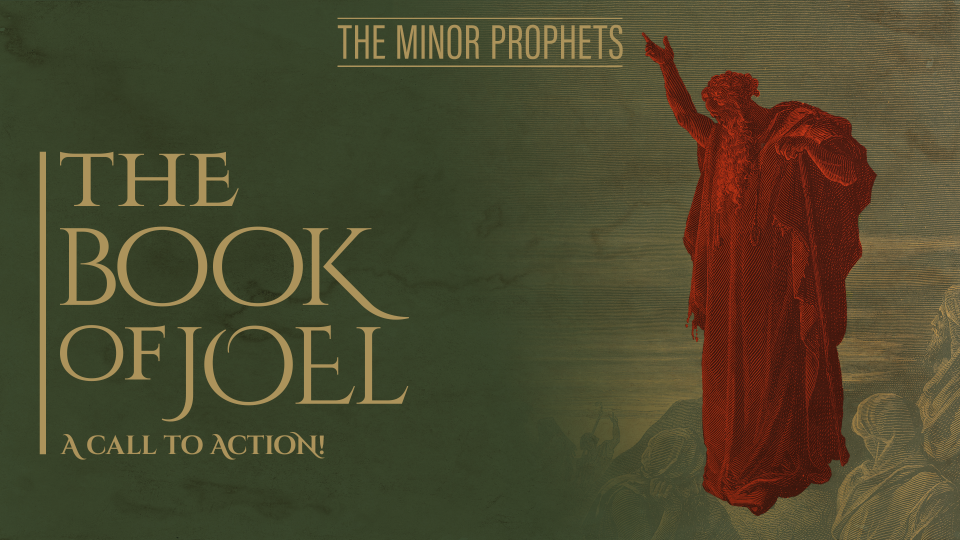Joel
יוֹאֵל
"Yahweh (is) God"
It would seem that the name "Joel" is a combination of "YHWH" and "El," but we have no evidence to support this view.

Used with permission. ©2021 United Church of God, an International Association. https://www.ucg.org/beyond-today/beyond-today-bible-study/the-minor-prophets
Introduction
The Book of Joel is part of the Hebrew Bible and Christian Old Testament, one of twelve prophetic books known as the Twelve Minor Prophets. (The term indicates the short length of the text in relation to longer prophetic texts known as the Major Prophets.)
Contents
Lament over a great locust plague and a severe drought (1:1–2:17).
Promise of future blessings (2:18–32 or 2:18–3:5).
Coming judgment on the Kingdom of Judah's enemies: the Philistines, the Kingdom of Edom, and the Kingdom of Egypt (3:1–21 or 4:1–21).
Date
As there are no explicit references in the book to datable persons or events, scholars have assigned a range of dates to the book. The main positions are:
Ninth century BC, particularly in the reign of Joash
Early eighth century BC, during the reign of Uzziah
c. 630–587 BC, in the last decades of the kingdom of Judah
c. 520–500 BC, contemporary with the return of the exiles
The decades around 400 BC, during the Persian period (making him one of the latest writing prophets)
The rest of this comprehensive Wikipedia article on the book can be read here.
An extract from BHFA Volume 5
Joel 2:8b
וּבְעַד הַשֶּׁלַח יִפֹּלוּ לֹא יִבְצָעוּ׃
they will stop not they will fall the sword and when
KJB and when they fall upon the sword, they shall not be wounded.
NASB When they burst through the defenses, They do not break ranks.
ESV they burst through the weapons and are not halted.
NLT They break through defenses without missing a step.
NIV They plunge through defenses without breaking ranks.
ISV When they fall by the sword they are not injured.
יִבְצָעוּ
Qal impf 3ms of the verb בָּצַע meaning at its core, "to cut off, to break off, to gain by violence." Here the object namely "their ranks" is ommitted, and it takes on the meaning of, "breaking off / stopping (their ranks)." This verb occurs 17 times in the Hebrew Bible, with no less than 15 different meanings.
The translators of the KJB chose “wounded,” and the ISV chose "injured" primarily because for them this was supposed to be a reference to an army of locusts (1:4, 2:3, 25) and not a human army.
An extract from BHFA Volume 5
Joel 4:14a
בְּעֵמֶק הֶחָרוּץ
the strict decision valley of
KJB in the valley of decision!
NIV in the valley of decision!
For this phrase, the Greek LXX has εν τη κοιλάδι της δίκης, "in the valley of punishment / justice / righteousness." Jerome's Latin Vulgate renders it as concisionis, meaning either "decision" or "destruction."חָרוּץ has three meanings:
An adjective meaning, "sharp, diligent," and is used to describe a threshing instrument (Is 31:15, Am 1:3).
A noun meaning, "moat, trench" (Dn 9:25).
A noun meaning, "strict decision" and used here in Joel. It is then often linked to a sharp instrument like a sickle that is used in a harvest.